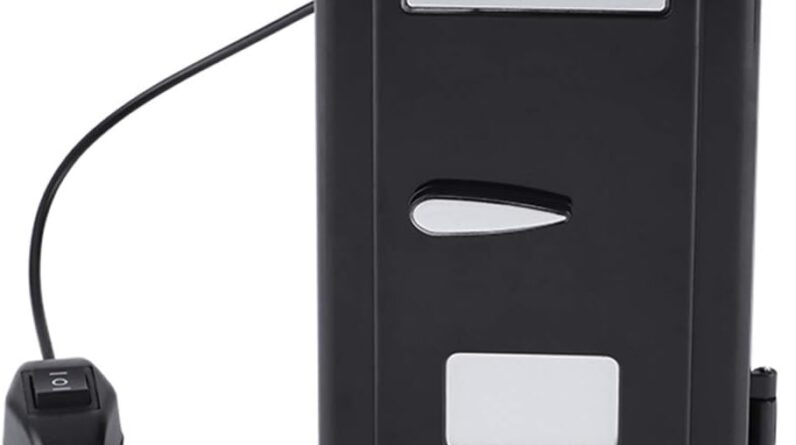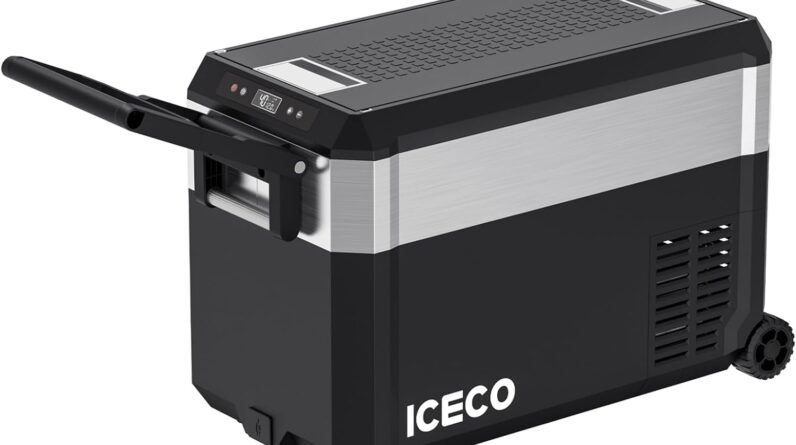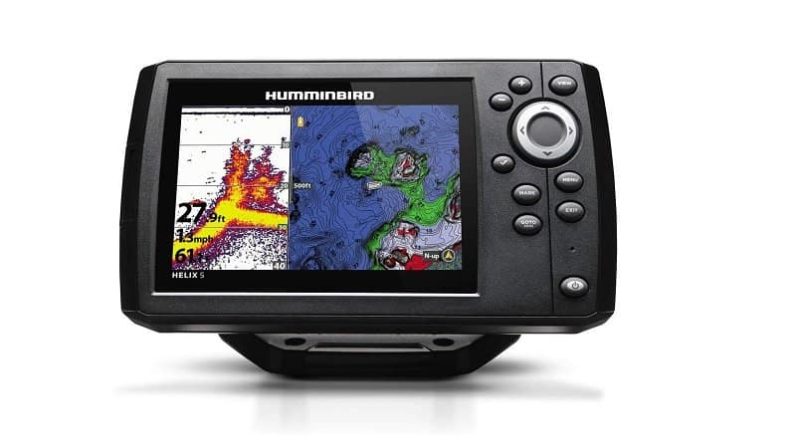
If you’ve ever wondered whether GPS can be used for marine navigation, the answer is an enthusiastic yes! With the advancements in technology, GPS has become an indispensable tool for sailors and boaters alike. Whether you’re navigating open waters or exploring the coastline, GPS provides accurate and reliable position information, making your journey safer and more efficient. So, get ready to set sail with confidence as we explore the wonderful world of using GPS for marine navigation.
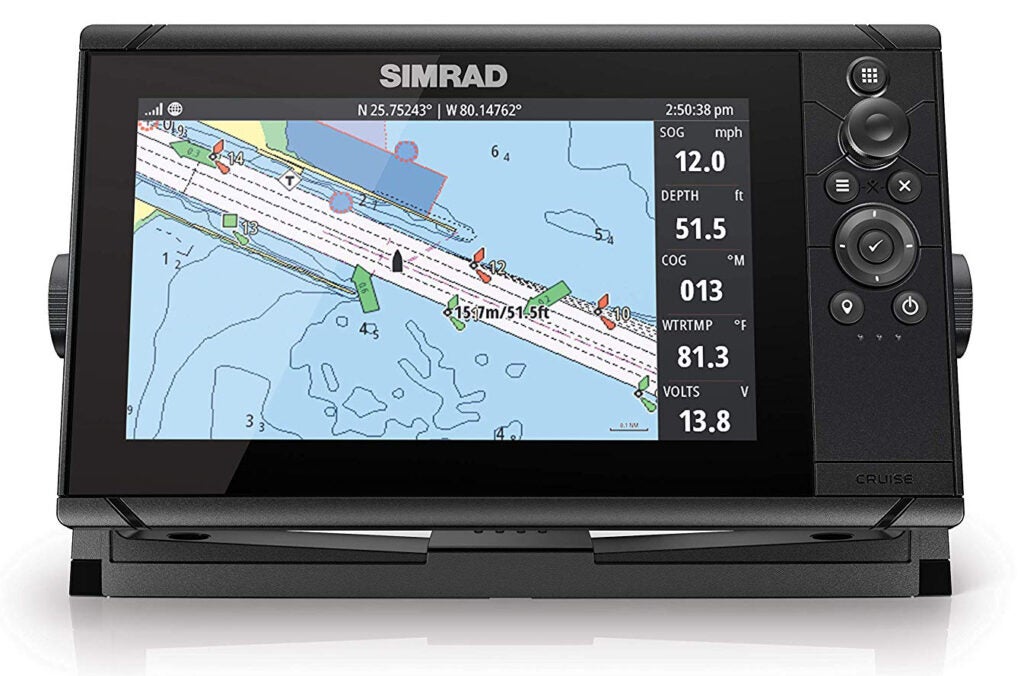
This image is property of www.outdoorlife.com.
Advantages of GPS for Marine Navigation
Accuracy of GPS
GPS technology provides a high level of accuracy in marine navigation. With the help of multiple satellites, GPS receivers can pinpoint your exact location on the water, ensuring that you stay on course and avoid potential hazards. This accuracy is essential for safe navigation, especially when traveling in unfamiliar waters or during challenging conditions.
Real-time Positioning
One of the greatest advantages of GPS for marine navigation is its ability to provide real-time positioning. With constant updates from satellite signals, GPS devices can track your boat’s movement and display your precise position on a digital map. This real-time information allows you to make necessary adjustments to your route and ensures that you stay on track throughout your journey.
Ease of Use
GPS devices are designed to be user-friendly and intuitive, making them accessible to both experienced sailors and beginners. Most GPS systems come with a simple interface and easy-to-understand controls, allowing you to quickly master their operation. With clear and concise instructions, you can navigate with confidence, even if you have limited previous experience with marine navigation.
Cost-Effectiveness
Compared to traditional navigation methods, GPS devices offer a cost-effective solution for marine navigation. While other systems may require expensive charts, compasses, and additional equipment, GPS provides a comprehensive navigation solution in a single device. Additionally, with the widespread availability of GPS technology, the cost of GPS devices has significantly decreased over time, making them affordable for boaters of all levels.
Versatility
GPS technology is highly versatile and can be used for various purposes in marine navigation. In addition to providing position and route information, modern GPS devices often offer additional features, such as weather updates, marine traffic information, and fishing hotspots. This versatility allows you to customize your GPS device to suit your specific needs, whether you’re a recreational boater, a professional sailor, or a fisherman.
Components of a GPS System for Marine Navigation
GPS Receiver
The GPS receiver is the main component of a marine GPS system. It receives signals from multiple satellites to calculate your precise location. Modern GPS receivers are compact and portable, allowing you to easily integrate them into your boat’s navigation setup.
Satellite Constellation
GPS receivers rely on a network of satellites known as a satellite constellation. These satellites are strategically positioned in orbit around the Earth to ensure reliable global coverage. By receiving signals from multiple satellites at any given time, GPS receivers can accurately determine your position.
Antenna
The antenna is responsible for receiving signals from GPS satellites. It is typically mounted on the outside of your boat to have an unobstructed view of the sky. The antenna sends the received signals to the GPS receiver for processing.
Display Unit
The display unit of a marine GPS system is where you can view your position, track, and other navigation information. Modern GPS displays often come in the form of color screens, allowing for easy interpretation of maps and data. The display unit is connected to the GPS receiver and provides real-time updates to assist in navigation.
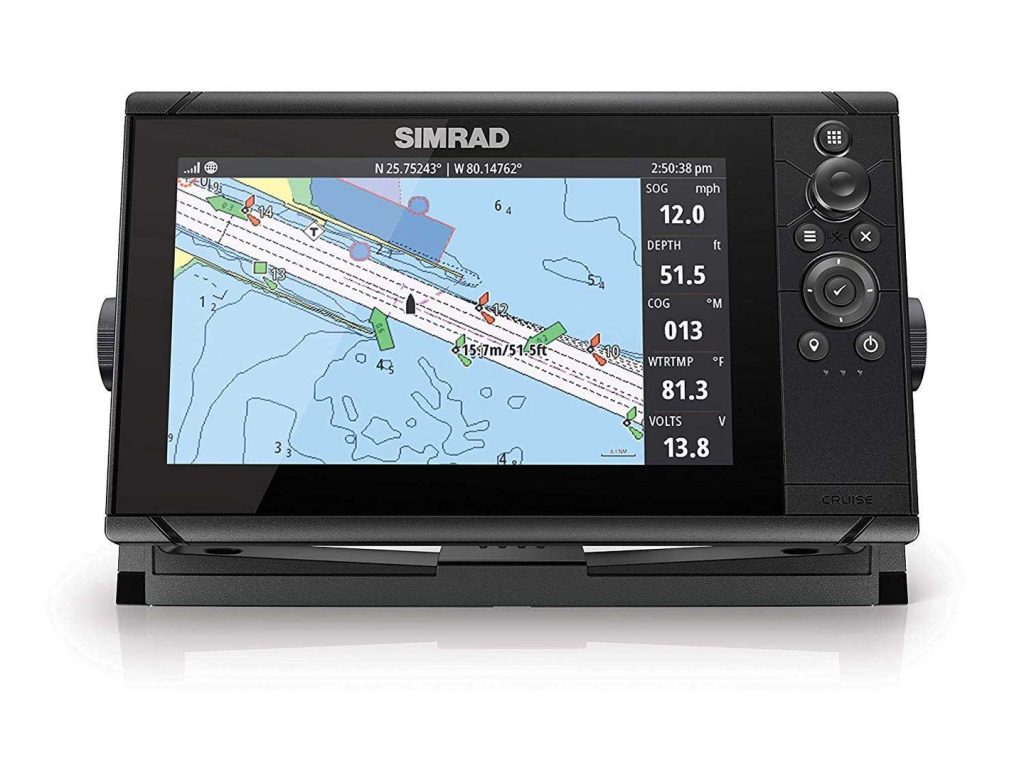
This image is property of www.outdoorlife.com.
Choosing the Right GPS Device for Marine Navigation
Waterproof and Rugged Design
When selecting a GPS device for marine navigation, it is crucial to choose one with a waterproof and rugged design. Exposure to water, humidity, and rough conditions is inevitable when boating, and a waterproof and rugged GPS device ensures that it can withstand these elements and operate reliably, even in challenging environments.
Adequate Satellite Coverage
To ensure reliable navigation, it is essential to choose a GPS device with adequate satellite coverage. Look for devices that can receive signals from a wide range of satellites, as this increases the chances of maintaining a stable connection, even in areas with obstructed views of the sky, such as narrow channels or dense forested areas.
Advanced Mapping and Navigation Features
Consider GPS devices that offer advanced mapping and navigation features suited to your specific needs. These features may include detailed marine charts, customizable waypoints, route planning capabilities, and the ability to mark and save important locations. Having these advanced features can greatly enhance your navigation experience and provide a higher level of safety and convenience.
Compatibility with Marine Charts
Compatibility with marine charts is an essential factor to consider when choosing a GPS device for marine navigation. Marine charts provide detailed information about water depth, navigation aids, and potential hazards, allowing you to make informed decisions while navigating. Ensure that your GPS device can display and utilize marine charts to optimize your navigation capabilities.
Basic Functions and Features of GPS for Marine Navigation
Position Fixing
The primary function of a GPS device is to provide accurate position fixing. By receiving signals from multiple satellites, the GPS receiver can calculate your latitude and longitude coordinates, allowing you to determine your exact location on the water with great precision.
Course and Speed Over Ground
GPS devices can calculate your course and speed over the ground, providing valuable information for efficient navigation. By continuously updating your position, the GPS receiver can calculate your vessel’s speed and direction, assisting in maintaining a steady course and making timely adjustments when necessary.
Track Plotting
Track plotting allows you to record your vessel’s path and visualize it on a digital map. GPS devices can store your track history, allowing you to review your previous routes and analyze your navigation performance. This feature is especially useful for evaluating the efficiency of your routes and identifying any potential deviations or mistakes.
Waypoint Navigation
Waypoint navigation enables you to set specific points of interest along your intended route. These waypoints can represent landmarks, navigation aids, or other important locations. GPS devices can guide you to these waypoints, providing clear direction and distance information to keep you on track.
Distance and ETA Calculation
GPS devices can calculate the distance between waypoints, your current position, and other destinations. This information allows you to estimate your estimated time of arrival (ETA) and plan your journey accordingly. Distance and ETA calculations are particularly useful for long journeys or when time constraints are a factor.

This image is property of marinetechnologyinc.com.
Enhanced Features and Advanced Capabilities of GPS for Marine Navigation
Automatic Identification System (AIS) Integration
AIS integration allows your GPS device to receive and display information about nearby vessels, including their position, speed, and course. This feature enhances situational awareness and can help prevent collisions by providing real-time data on surrounding marine traffic.
Chartplotter Integration
Chartplotter integration combines the functionality of a GPS device with detailed electronic marine charts. This integration allows you to overlay your GPS position and track onto a digital chart, providing a visual representation of your location in relation to surrounding features and navigational aids.
Sonar and Depth Sounder Integration
Some GPS devices can integrate with sonar and depth sounders, providing additional information about water depth and underwater features. This integration allows for accurate depth readings and assists in avoiding shallow areas or submerged obstacles.
Sail Racing Functions
For competitive sailing enthusiasts, GPS devices with sail racing functions offer specialized features such as race timers, start line assistance, and wind direction indicators. These features provide valuable data during regattas or sail races, allowing you to optimize your sailing performance and make strategic decisions.
Using GPS for Safe Navigation at Sea
Ensuring GPS Accuracy
To ensure GPS accuracy, it is important to regularly check for firmware updates and make sure your GPS device is using the latest software version. Additionally, proper installation and calibration of antennas and other components are essential. Regularly calibrating your compass and verifying satellite signal strength can also contribute to accurate GPS readings.
Understanding GPS Limitations
While GPS is a powerful navigation tool, it is essential to understand its limitations. GPS devices may experience signal disruptions during extreme weather conditions, in narrow channels surrounded by tall cliffs, or under dense foliage. Additionally, errors in satellite signals or user errors can occasionally lead to slight inaccuracies. It is crucial to use GPS as a tool alongside traditional navigation methods to mitigate these limitations.
Using GPS alongside Traditional Navigation Methods
Although GPS provides accurate and real-time navigation information, it is always wise to rely on traditional navigation methods as a backup. Utilizing tools such as paper charts, compasses, and depth sounders can provide redundancy, ensuring that you have alternative references in case of GPS system failure or signal loss.
Updating and Maintaining GPS System
Regular updates and maintenance are necessary to keep your GPS system functioning optimally. Make sure to update your GPS software and maps regularly, as new features, bug fixes, and updated navigational data become available. Additionally, inspecting and cleaning your GPS device, antenna, and connectors help maintain their performance and prolong their lifespan.
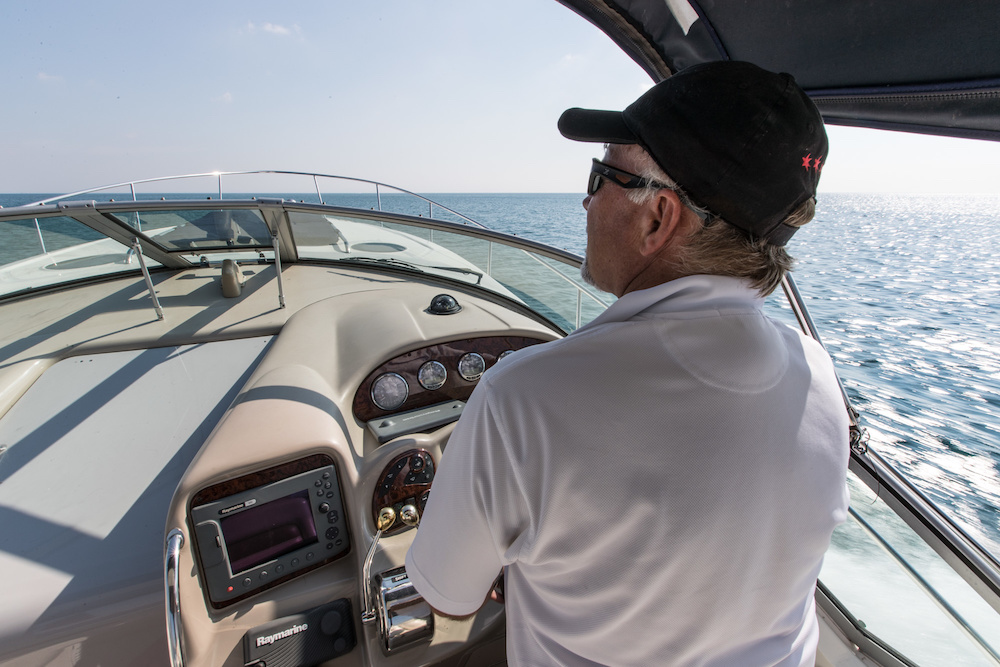
This image is property of www.discoverboating.com.
GPS as a Navigation Aid in Maritime Search and Rescue
Immediate Position Reporting
In maritime search and rescue operations, GPS devices play a vital role in providing immediate and accurate position reports. Distressed vessels or individuals can transmit their GPS coordinates, enabling rescue teams to quickly locate them and initiate appropriate response actions.
Locating Distressed Vessels or Individuals
GPS technology can significantly improve the efficiency and effectiveness of locating distressed vessels or individuals in emergency situations. By transmitting their GPS coordinates and continuously updating their position, those in distress can increase their chances of being found quickly, minimizing response time and potentially saving lives.
Navigation Assistance for Search and Rescue Teams
GPS devices equipped with tracking and communication capabilities can assist search and rescue teams in navigating to the distress location. By utilizing GPS data from the distressed vessel or individual, search and rescue teams can plot the most efficient route, ensuring a timely response without wasting precious time or resources.
Navigating in Challenging Conditions with GPS
Navigating in Poor Visibility or Darkness
GPS devices are especially valuable tools in navigating during poor visibility or darkness. By relying on GPS coordinates and real-time positioning, boaters can safely navigate without visual references. However, it is important to exercise caution and combine GPS navigation with other navigational aids, such as radar or sound signals, when operating under low visibility conditions.
Navigating in Remote or Unfamiliar Areas
When navigating in remote or unfamiliar waters, GPS devices provide a reliable means of tracking your position and ensuring that you maintain the desired course. By accurately displaying your position on a digital map, GPS helps prevent boat drift and ensures that you do not unintentionally deviate from your intended route.
Navigating with GPS in Rough Seas or Adverse Weather
GPS devices are beneficial in navigating rough seas or adverse weather conditions. By continuously updating your position and track, GPS enables you to make the necessary course adjustments to navigate around hazardous areas or avoid rough waves. This real-time feedback allows for safer navigation and helps mitigate the risks associated with challenging weather and sea conditions.

This image is property of www.boatsafe.com.
Tips and Best Practices for Using GPS in Marine Navigation
Carrying Backup GPS Devices
As with any electronic device, it is wise to carry a backup GPS device onboard. A second GPS device can serve as a redundancy in case of the primary device malfunctioning or losing signal. Having a backup ensures that you do not solely rely on a single device for navigation, offering a higher level of safety and peace of mind.
Regularly Updating GPS Software and Maps
To take advantage of the latest features and navigational data, it is essential to update your GPS software and maps regularly. Manufacturers often release firmware updates that improve system performance and address any known issues. Keeping your GPS system up to date ensures that you have the most accurate and reliable information at all times.
Monitoring and Verifying GPS Position
While using GPS for navigation, it is essential to constantly monitor and verify your position. Comparing GPS readings with other navigational aids, such as depth sounders or visual landmarks, helps ensure that your GPS remains accurate and reliable. Trusting your GPS entirely without cross-referencing can lead to potential errors or deviations from the desired course.
Maintaining Proper Battery Power
To avoid interruptions in navigation, it is crucial to maintain proper battery power for your GPS device. Regularly check and charge your device’s batteries to ensure that they are fully operational when needed. Additionally, bringing spare batteries or a portable charging solution onboard provides an extra layer of preparedness for extended trips or emergencies.
Using GPS Data to Improve Navigation Skills
Utilize GPS data from previous trips to analyze your navigation performance and improve your skills over time. By reviewing your track history, waypoint accuracy, and navigational decisions, you can identify areas for improvement and enhance your overall navigation proficiency. Continuously learning and fine-tuning your skills with the help of GPS data will make you a more competent and confident navigator.
Future Trends in GPS Technology for Marine Navigation
Implementation of Augmented Reality
Augmented reality (AR) is an emerging technology that has the potential to revolutionize marine navigation. By overlaying digital information, such as waypoints, charts, and hazards, onto real-world views, AR can provide boaters with a highly immersive and intuitive navigation experience, enhancing situational awareness and safety on the water.
Integration with Other Navigation Systems
Future GPS devices are expected to integrate seamlessly with other navigation systems, further enhancing their capabilities. Integration with radar systems, autopilots, and depth sounders will enable boaters to have comprehensive and synchronized navigation data, simplifying the navigation process and reducing the risk of errors.
Improved Accuracy and Precision
Advancements in GPS technology will continue to enhance accuracy and precision in marine navigation. With the implementation of more sophisticated algorithms and increased satellite coverage, future GPS devices will provide even more precise and reliable position information, ensuring optimal navigation outcomes.
Enhanced Data Connectivity
In the future, GPS devices are likely to have improved data connectivity options, allowing for real-time updates and access to a broader range of information. This enhanced connectivity will enable boaters to receive up-to-date weather forecasts, marine traffic data, and other pertinent information, enhancing their navigation planning and decision-making process.
As GPS technology continues to evolve, its advantages in marine navigation become increasingly apparent. With enhanced accuracy, real-time positioning, ease of use, cost-effectiveness, and versatile features, GPS devices are indispensable tools for boaters of all levels. By understanding the components, choosing the right device, and utilizing its functions effectively, boaters can navigate safely and confidently on the water, regardless of the conditions they encounter.


